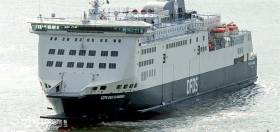Displaying items by tag: DFDS Director
It Pays to Install Green Technology – DFDS Director
#GreenTechology - At the annual European Marine Engineering Conference next month the event will climax with The Doug Woodyard Memorial Debate.
Poul Woodall, director, environment and sustainability, DFDS will be speaking against the motion: This conference believes it does not pay to install green technologies.
Danish ferry operator DFDS (including Dover-Calais) is the world champion in marine scrubbers, believes its director for sustainability and development Poul Woodall.
To read more, Passenger Ship Technology has more here.
Afloat adds that DFDS have recently added Côte Des Flandres the second of a pair of former MyFerryLink ferries (sold by Eurotunnel) onto the Dover-Calais route last month. The refurbished 1,500 passenger/400 car capacity ferry complete with new livery, joins Côte des Dunes, which too entered service last month following a similar refit.
The additional capacity brings to three DFDS ferries, the Calais Seaways which had been accompanied by Malo Seaways. The former Irish Sea ferry Stena Nordica was replaced almost year ago by Dublin-Holyhead newcomer Stena Superfast X. She was on charter from Stena to DFDS serving the route as the Dieppe Seaways.
























































